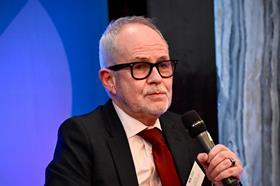Last June, I travelled to the Philippines for the International Fair Trial Day. This annual event is an initiative which was born out of a desire to honour the life and work of Turkish lawyer Ebru Timtik, who went on hunger strike to protest against the way she and her colleagues’ fair trial rights had been violated in Turkey in 2020. Ebru sacrificed her life to try and prevent others from suffering similar violations.

Every year since 2021, the event has focused on a different country where fair trial rights have been violated. The aim is to bring attention to everyone, from lawyers to journalists and politicians to academics or members of the public, who suffered from speaking truth to power.
The Philippines was the focus country in 2024 because of serious interference with the independence of judges and lawyers, and systemic issues of arbitrary detention, enforced disappearance and extrajudicial killing. After the conference, the Philippines Edition Event Report was drafted highlighting key messages and takeaways.
In advance of the conference, an international delegation of lawyers known as the 'Caravana Filipina' carried out a fact-finding mission which investigated extrajudicial killings and other gross human rights violations against legal professionals in the Philippines between 2016 and 2023. The cases examined by the Caravana relate primarily to lawyers, but also to some judges and prosecutors. It is a joint initiative of 10 different lawyers’ organisations, including the Law Society, from multiple countries. The full report was published last week and can be downloaded here.
We have had recent problems with the persecution of lawyers in England and Wales, including the attacks on immigration lawyers in the summer of 2024 and the frequent criticisms of 'lefty lawyers' who are standing up for their clients in unpopular cases. However, these violations which we have faced as lawyers in the UK pale in comparison to the levels of persecution faced by lawyers in many other parts of the world.
The Philippines has long been recognised as one of the worst environments for lawyers, prosecutors, judges and rights defenders in general. For decades, brave individuals have risked their personal safety to provide legal representation in public interest and human rights cases. And they have suffered for it.
In the 15 years from September 2007 to December 2022, 271 cases of work-related attacks on Filipino lawyers and judges were recorded by the National Union of Peoples’ Lawyers. 86 lawyers were unlawfully killed. At least 185 forms of attack were used on legal professionals, including attempted killings, threats, intimidation and labelling or vilification.
It is difficult for us to comprehend such levels of aggression against lawyers and judges for just doing their job. The elements of this abuse are all set out in the report. Some examples are surveillance, intimidation, 'red-tagging' (branding individuals as terrorist sympathisers in order to isolate them and expose them to threats) and 'lawfare' (politically motivated legal harassment by way of prosecutions for working on human rights or politically sensitive cases). All in a country which has a culture of impunity that the report comprehensively discloses.
The report also makes a series of recommendations to try to secure judicial independence and the protection of lawyers. It also appeals to the international community to use all diplomatic and political tools at its disposal to put pressure on the Philippine authorities to conduct independent, thorough and effective investigations into extrajudicial killings and other grave human rights violations.
Engagement in the Caravana Filipina and the annual International Fair Trial Day is part of the Law Society’s Lawyers at Risk programme. The programme works on behalf of lawyers and often bar associations who have been threatened, vilified or worse for practising law.
This work involves writing to authorities and issuing statements, often with other bar associations and lawyers’ groups, focusing on threats against lawyers all over the world. It also involves engaging in third party interventions in cases before the European Court of Human Rights and joining in shadow reports on the position of lawyers in countries where a review is being undertaken by the United Nations. The breakdown of these actions is published in the Law Society’s annual intervention tracker.
We all face challenges in our day-to-day practice but we need to pause and save a thought for lawyers in other countries who face so many more barriers to securing access to justice for their clients. It may help us to remain alert to any movement towards this culture in our own jurisdiction.
This year, International Fair Trial Day focuses on Tunisia, with a conference in Brussels and online on 12 June. You can register to attend here.
Tony Fisher is chair of the Human Rights Committee at the Law Society of England and Wales































No comments yet